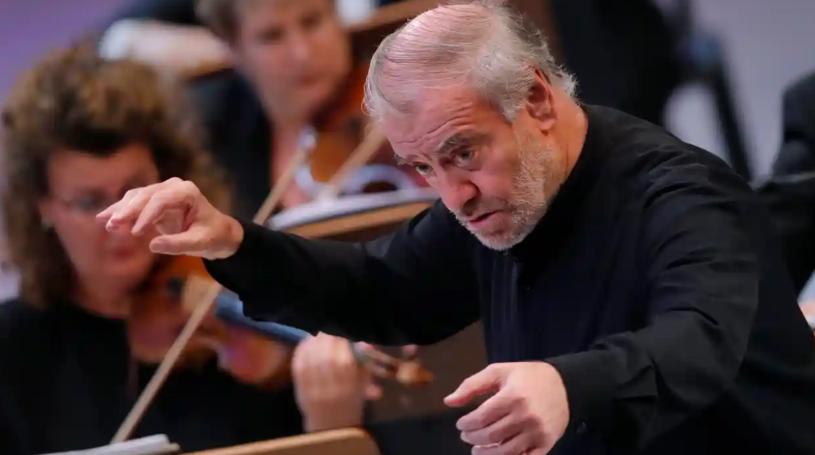Munich Philharmonic sacks conductor Valery Gergiev over failure to denounce Putin
The Munich Philharmonic Orchestra has sacked the star Russian conductor Valery Gergiev after he failed to speak out against the invasion of Ukraine or distance himself from his close friend and supporter Vladimir Putin.
The mayor of Munich, Dieter Reiter, said on Tuesday morning that Gergiev’s contract had been terminated with immediate effect. It came a day after the conductor’s management dropped him for refusing to end what it said was his “long-expressed support” for a “criminal regime”.
The decision leaves Gergiev, hailed as one of world’s greatest conductors, more or less isolated in the world of classical music. The Scala in Milan, the Festspielhaus in Baden-Baden and the Elbphilharmonie in Hamburg have also cut their ties with the 68-year-old.
The Rotterdam Philharmonic Orchestra, which has run an annual Gergiev festival since 1996, is expected to cancel its event this September if the conductor does not end his support for Putin.
In the US, Gergiev had already been replaced for several performances by the Vienna Philharmonic at Carnegie Hall in New York and in Naples, Florida, and for two performances again at Carnegie Hall in May where he was due to lead St Petersburg’s Mariinsky Orchestra, of which he is music director.
Reiter said in a statement that Gergiev, who had been the chief conductor at the Munich Philharmonic since 2015, had refused a demand that he “distance himself unambiguously and unapologetically from the brutal war of aggression which Putin is leading against Ukraine and now in particular also against our partner city, Kyiv.”
Reiter had appealed to the conductor in a letter on Friday to condemn the war, giving him until Monday evening to do so. “In the current situation, a clear signal for the orchestra, its audience, the general public and politics would be essential in order to enable further cooperation,” he said.
Marcus Felsner, Gergiev’s former manager, on Sunday called him “the greatest conductor alive and an extraordinary human being with a profound sense of decency” but said he had no choice but to let him go as he “will not, or cannot, publicly end his long-expressed support for a regime that has come to commit such crimes.”
He said: “In the light of the criminal war waged by the Russian regime against the democratic and independent nation of Ukraine, and against the European open society as a whole, it has become impossible for us, and clearly unwelcome, to defend the interests of Maestro Gergiev.”
Felsner, who signed Gergiev in 2020, called it “the saddest day of my professional life”.
Over the years, Gergiev’s close friendship with the Russian president, which began in the early 1990s, has drawn increasing criticism, particularly since the annexation of Crimea.
In 2014, Gergiev was a signatory to an artists’ appeal that supported the annexation and in which he stated his clear support for Putin’s political views. In 2012 he appeared in an advert supporting Putin’s presidential campaign and in 2016 he conducted a concert in the Syrian city of Palmyra for an audience of Russian soldiers, government ministers and journalists after its capture from Islamic State.
There has so far been no public reaction from Gergiev, and his US agent has yet to respond.

